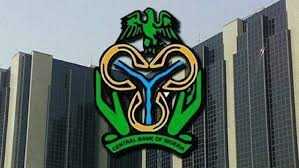The Central Bank of Nigeria has announced a 50 basis points reduction in the Monetary Policy Rate, lowering it from 27.50 to 27.00 per cent. The bank says the decision is a deliberate step to support economic recovery, stimulate lending, and ease the financial pressure on households and small and medium-sized enterprises (SMEs).
The rate cut, announced after the Monetary Policy Committee’s 302nd meeting, is part of a broader monetary adjustment that also includes raising the Cash Reserve Ratio (CRR) for commercial banks to 45 per cent, introducing a 75 per cent CRR on non-TSA public sector deposits, and maintaining the Liquidity Ratio at 30 per cent. These changes, according to the central bank, are designed to balance inflation control with credit expansion in key growth sectors.
Explaining the impact, the CBN’s Monetary Policy Director said that lowering the policy rate will reduce borrowing costs for banks, who are expected to pass on those benefits to businesses and households. He noted that cheaper access to credit will help businesses cut production costs, which should lead to lower product prices, stronger purchasing power for consumers, and overall economic growth.
“Lowering the MPR reduces the cost at which banks borrow from the central bank. That should translate into lower interest rates for small businesses and households. As borrowing costs drop, production costs will also reduce, leading to lower prices and improved purchasing power,” he explained.
The central bank believes this policy shift will be particularly beneficial for small businesses, many of which struggle with high interest rates that limit their ability to expand, hire, or invest in new equipment. With reduced lending rates, more SMEs could gain access to credit, scale their operations, and contribute more meaningfully to job creation and economic diversification.
“Many banks are already keen to fund small businesses with strong repayment capacity. The reduction in MPR will make credit more accessible and competitive, and we expect targeted sectors to benefit significantly,” he added.
The central bank expressed confidence that the move will not weaken the naira, pointing to external reserves exceeding $43 billion, a stable exchange rate, and slowing inflation as strong buffers against potential shocks. It also noted that the ongoing harvest season would further ease inflationary pressures, while foreign portfolio inflows and remittances continue to strengthen the foreign exchange market.
“We do not expect any negative impact on the currency. Our fundamentals remain strong, and the narrowing gap between official and parallel exchange rates shows the market’s resilience,” the CBN official said.
Despite the cut, the policy rate remains at 27 per cent, which the bank considers a tightening stance that will continue to moderate inflation while creating more room for growth. It has also tightened liquidity control by subjecting non-TSA public sector deposits to a 75 per cent CRR, a move aimed at preventing excess liquidity from fuelling inflation.
The CBN said its decision aligns with global monetary trends, following similar rate cuts by central banks in the United States and Ghana as part of broader strategies to stimulate growth amid uncertain global trade conditions.
Looking ahead, future policy decisions will be driven by economic data, particularly inflation trends, which are expected to continue declining through the rest of 2025. The bank described the outlook as optimistic, with macroeconomic indicators showing steady improvement.










